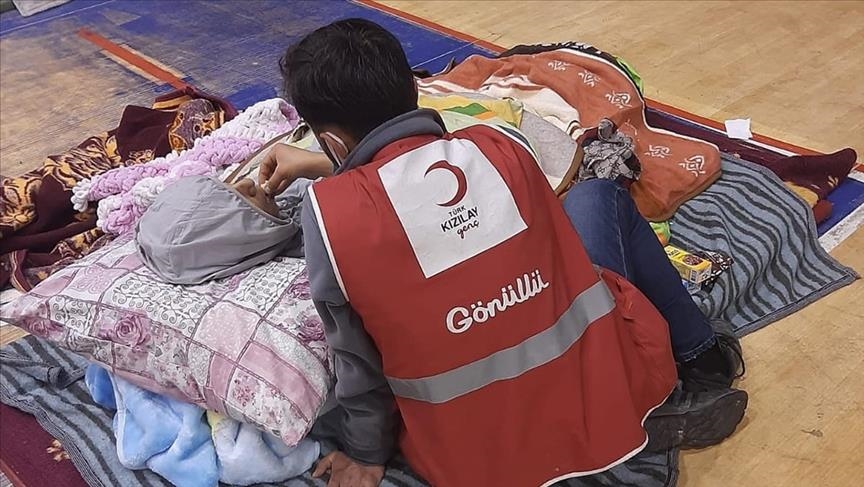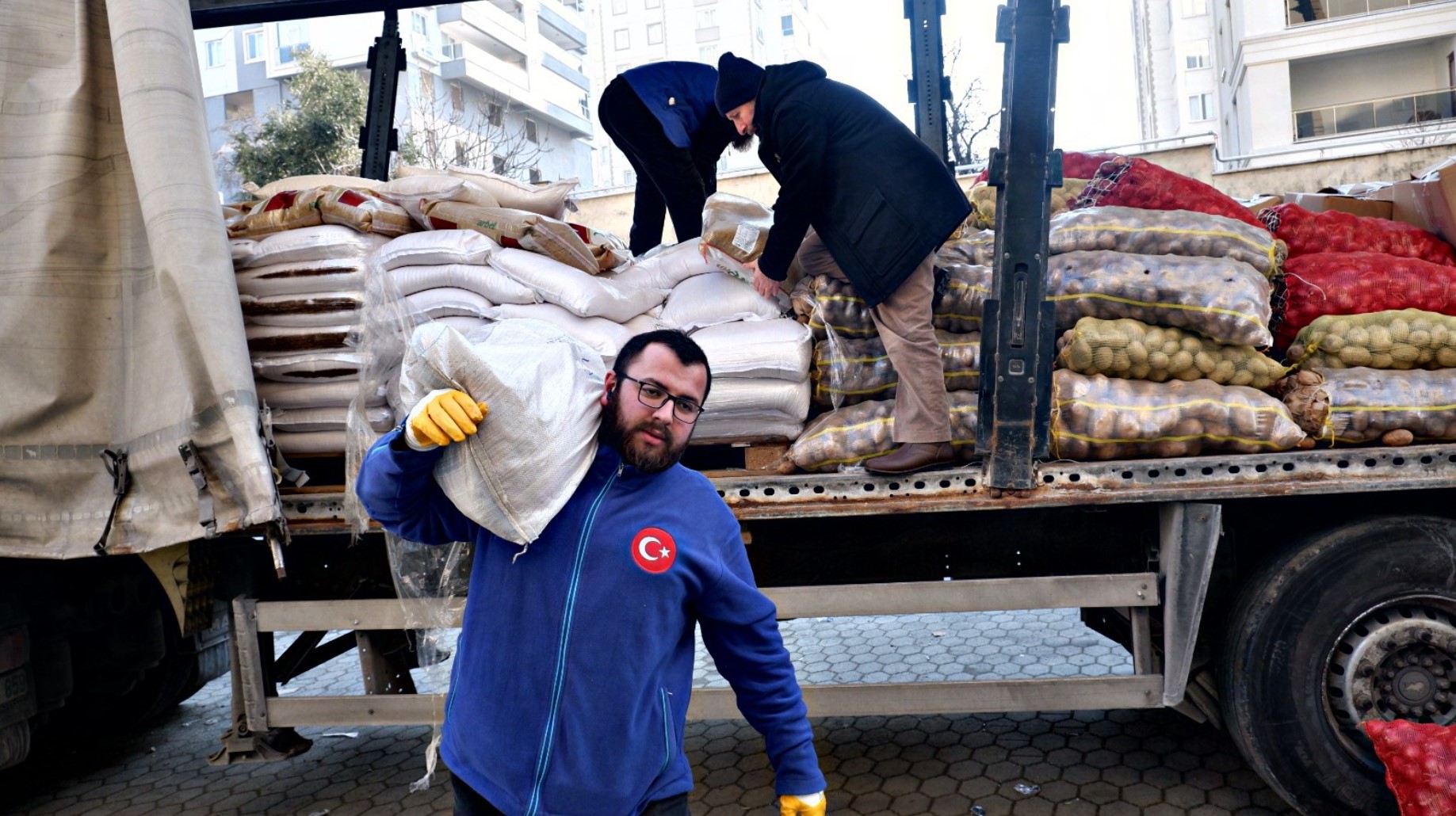14 days after Türkiye’s quakes, ‘things ease’ for volunteers ‘but needs of victims change every day’
With central logistics center in Adana province, Istanbul-based civil society organization mobilizes volunteers, runs kitchens

ADANA / ISTANBUL, Türkiye
Though the situation for volunteers in the post-earthquakes time has "eased" in southern Türkiye, needs of the affected people are changing on daily basis, volunteers working on the ground zero said.
“Difficult time has passed (and) circumstances are becoming easier for us,” Cengiz Aslan, 53, project coordinator of one of the central relief supplies centers in this southern province of Adana, told Anadolu.
“But needs of the quakes-affected people are changing every day,” he pointed out, as two weeks have passed since the worst earthquakes of the 21st century hit the country early this month.
Aslan is coordinating supplies from across Türkiye since two earthquakes hit 11 southern provinces of the country on Feb. 06.
Head of Adana-based Entrepreneurs and Businessmen Foundation, Aslan said his organization, Istanbul-based Insan Vakfi or Human Association, has mobilized services of around 3,500 volunteers.
Located on the shores of Halic, the Golden Horn, in the most popular Turkish metropolitan, the association’s main aim is “public benefit.”
“The volunteers traveled across the quakes-hit provinces, by foot, motorcycles, and around 45 off-road vehicles to reach the people,” Aslan said.

Tough times end, needs keep changing
Aslan said the initial period of a tough time for volunteers seems to have passed.
“There was a huge rush (of request for help) … we could not sleep, as we continuously kept receiving a lot of phone calls … there was the hurry in every situation,” the humanitarian activist explained.
“We even could not reach (some) areas because of heavy snow and broken roads.”
After 14 days, Aslan said: “Things have eased.”
“But the needs of affected people keep changing,” he said.
“First, there was the requirement of bread and water; then burial garment or shroud,” he said, adding people in the affected areas also needed undergarments.
Pointing out the scale of devastation, he said: “Some neighborhoods will be completely rubbed off the maps as there are no (usable) remnants left.”
He said the association has set up a mobile kitchen for soup and tea in what was once a lively central place in Antakya. “But now, either people have died or have been displaced. We only serve security forces or volunteers working to remove the rubble.”
Insaf Vakfi is currently operating 20 kitchens that serve around 82,000 people daily. Besides, it runs two mobile bakehouses which have the capacity to produce around 40,000 pieces daily.
“All these kitchens also serve as logistic centers where people can find dresses, hygiene stuff, water, and food,” said Aslan, adding the association has put to use some 340 cars for volunteers.
He said the people now need tents, blankets, electricity generators, old-style stoves, and coal as winter has compounded the problem for the affected people.
“Kahramanmaras, Malatya, Adiyaman, and Antep are coldest places,” he said, adding local government and organizations have supplied people with oil and coal.
Hatay, and Antakya, the Mediterranean cities, are “a bit better” in terms of daily temperatures, he added.
“The (level of) displacement of people is huge,” he said.

Logistics depot in Adana
Aslan dispatches at least three to five trucks of various capacities to quakes-hit provinces on daily basis.
“All relief items come to this place in Adana,” he said. “We ask our colleagues about needs from cities and according to needs-based assessment, we supply relief items from the depot, load trucks, and dispatch them daily.”
The overall data compiled by the association shows they have sent 570 trucks with relief items in past two weeks.
He added some relief is supplied “directly from other non-hit provinces so as to save time.”
There are three more such logistic centers across southern Türkiye.
Working in coordination with the Turkish disaster response management authority, or AFAD, he said Insaf Vakfi volunteers are also conducting search and rescue operations and were successful in rescuing trapped people.
“On day one when our teams reached Antakya, one of the worst-hit cities, and tried to contact all local AFAD members we found they were also victims of the disastrous earthquakes... their office building had collapsed,” he said.
Aslan said the association also established 30 mobile toilets.
At least 40,642 people were killed by two strong earthquakes that jolted southern Türkiye on Feb. 6, the latest official data showed.
The magnitude 7.7 and 7.6 quakes were centered in Kahramanmaras and struck 10 other provinces – Adana, Adiyaman, Diyarbakir, Hatay, Gaziantep, Malatya, Kilis, Osmaniye, Elazig, and Sanliurfa. More than 13 million people have been affected by the devastating quakes.
Besides government machinery, hundreds of civil society organizations are working on the ground in coordination with AFAD to help people in southern provinces stand up to the challenge posed by the earthquakes.
Over 9,000 international search and rescue personnel, including those from Pakistan, flew into Türkiye after the quakes-hit southern provinces.
Türkiye issued a level-4 alert, calling for international aid.
More than 249,000 search and rescue personnel are currently working in the field, according to AFAD.
Around 100 countries have offered assistance so far, with many having sent rescue teams.








